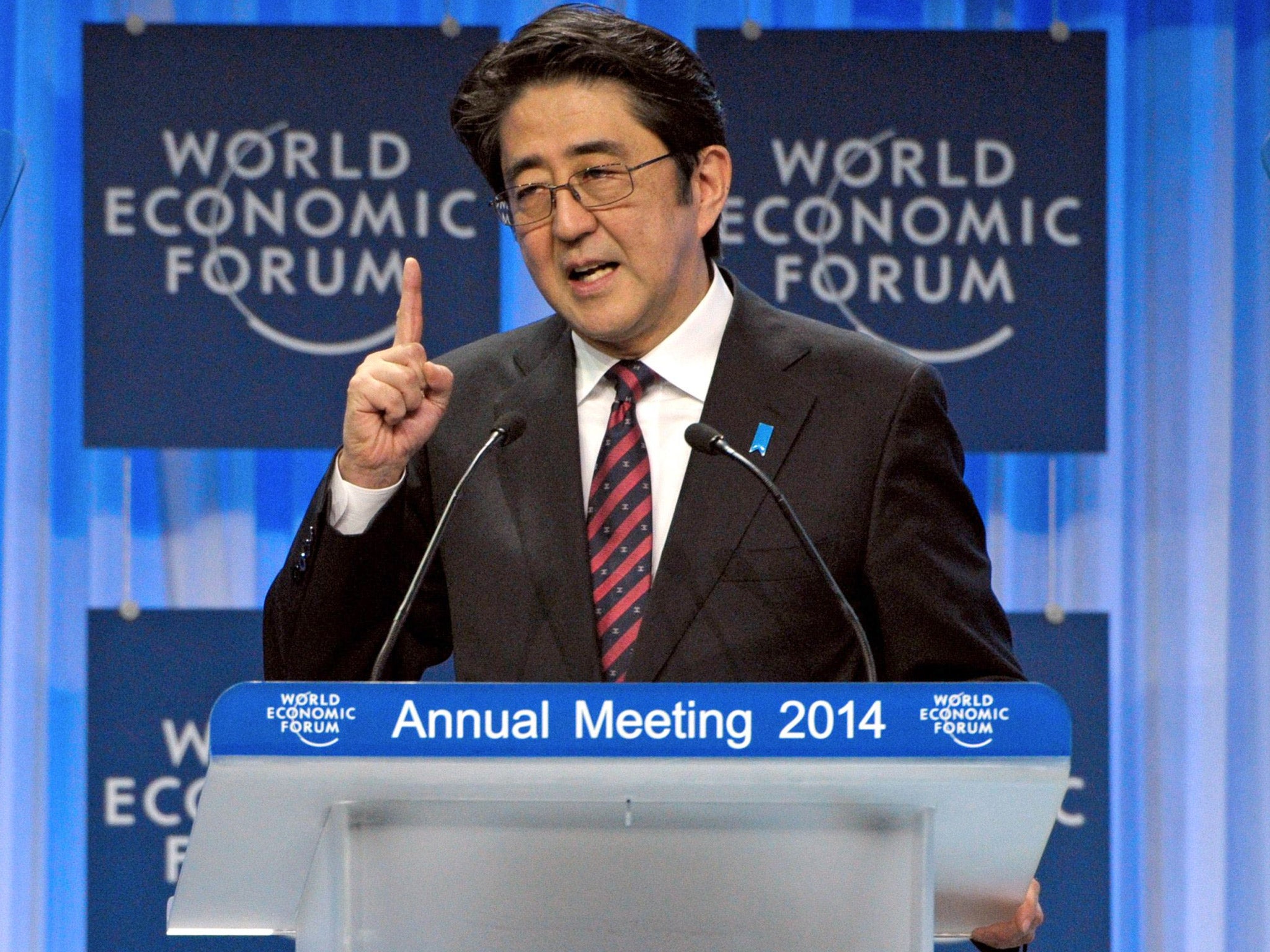Japanese premier Shinzo Abe compares tension between Tokyo and Beijing to that in Europe before First World War

Your support helps us to tell the story
From reproductive rights to climate change to Big Tech, The Independent is on the ground when the story is developing. Whether it's investigating the financials of Elon Musk's pro-Trump PAC or producing our latest documentary, 'The A Word', which shines a light on the American women fighting for reproductive rights, we know how important it is to parse out the facts from the messaging.
At such a critical moment in US history, we need reporters on the ground. Your donation allows us to keep sending journalists to speak to both sides of the story.
The Independent is trusted by Americans across the entire political spectrum. And unlike many other quality news outlets, we choose not to lock Americans out of our reporting and analysis with paywalls. We believe quality journalism should be available to everyone, paid for by those who can afford it.
Your support makes all the difference.Japan’s prime minister Shinzo Abe sent a shiver through the global diplomatic community today, by explicitly comparing tensions between Tokyo and Beijing to animosity between European powers in the run-up to the First World War.
Speaking on a visit to the World Economic Forum in Davos, Switzerland, Mr Abe said it was a “similar situation”, highlighting that China and Japan today, like Britain and Germany in 1914, have extensive trading links. He noted that in the case of Europe these trade links did not prevent an outbreak of hostilities.
Mr Abe also took the opportunity to cite rising Chinese military expenditure as a source of instability in the Pacific. He added that Japan was keen to strengthen its military ties with Washington.
Tensions have been running high over the past year between the two Asian economic giants over the disputed sovereignty of the uninhabited Senkaku/Diaoyu Islands in the East China Sea. Last November China established an air defence zone over the islands, which overlaps with Tokyo’s own, raising fears of a possible standoff.
However, Mr Abe also yesterday re-iterated Tokyo’s long-standing pledge “never again to fight a war” and said that an inadvertent conflict between the two countries – which have no high level diplomatic hotline – would be disastrous. “Japan has sworn an oath, never again to wage a war” he told delegates. “We continue to wish the world will remain in peace.”
Mr Abe was also in the Swiss mountain resort, where top business leaders and politicians are gathered for five days, in order to emphasise that the Japanese economy is finally turning a corner. In a rousing speech, delivered in English, Mr Abe pledged to boost Japan’s productivity growth by increasing the number of women in “leadership positions” to 30 per cent by 2020 and also by increasing immigration.
“It is not twilight but a new dawn that is breaking over Japan,” he said. Mr Abe also promised that he would personally drive structural reform. “I am willing to act like a drill bit to pierce through the solid rock of vested interests” he said.
The current ratio of female managers in Japan is 12 per cent, well below the level seen in other advanced nations. To achieve this goal Mr Abe has called for local governments to establish more childcare centres, to help women return to the workforce. He has also urged business leaders to extend permitted maternity leave to three years, from the present maximum of 18 months.
Join our commenting forum
Join thought-provoking conversations, follow other Independent readers and see their replies
Comments